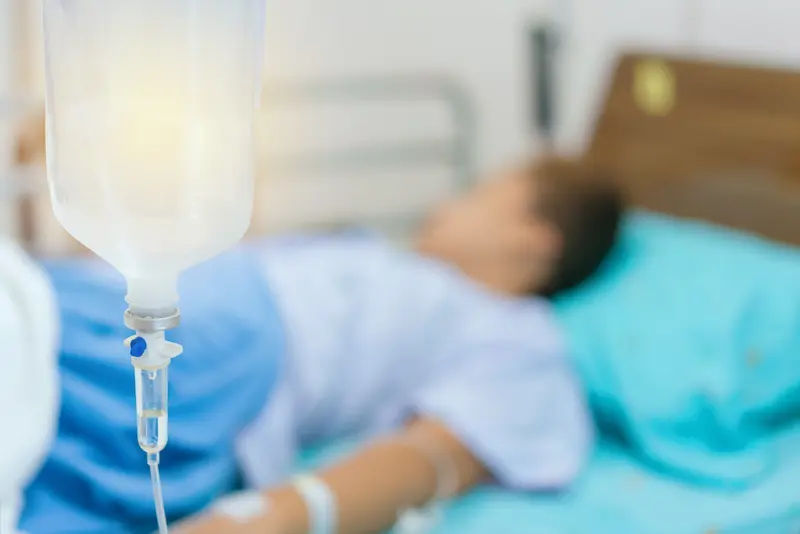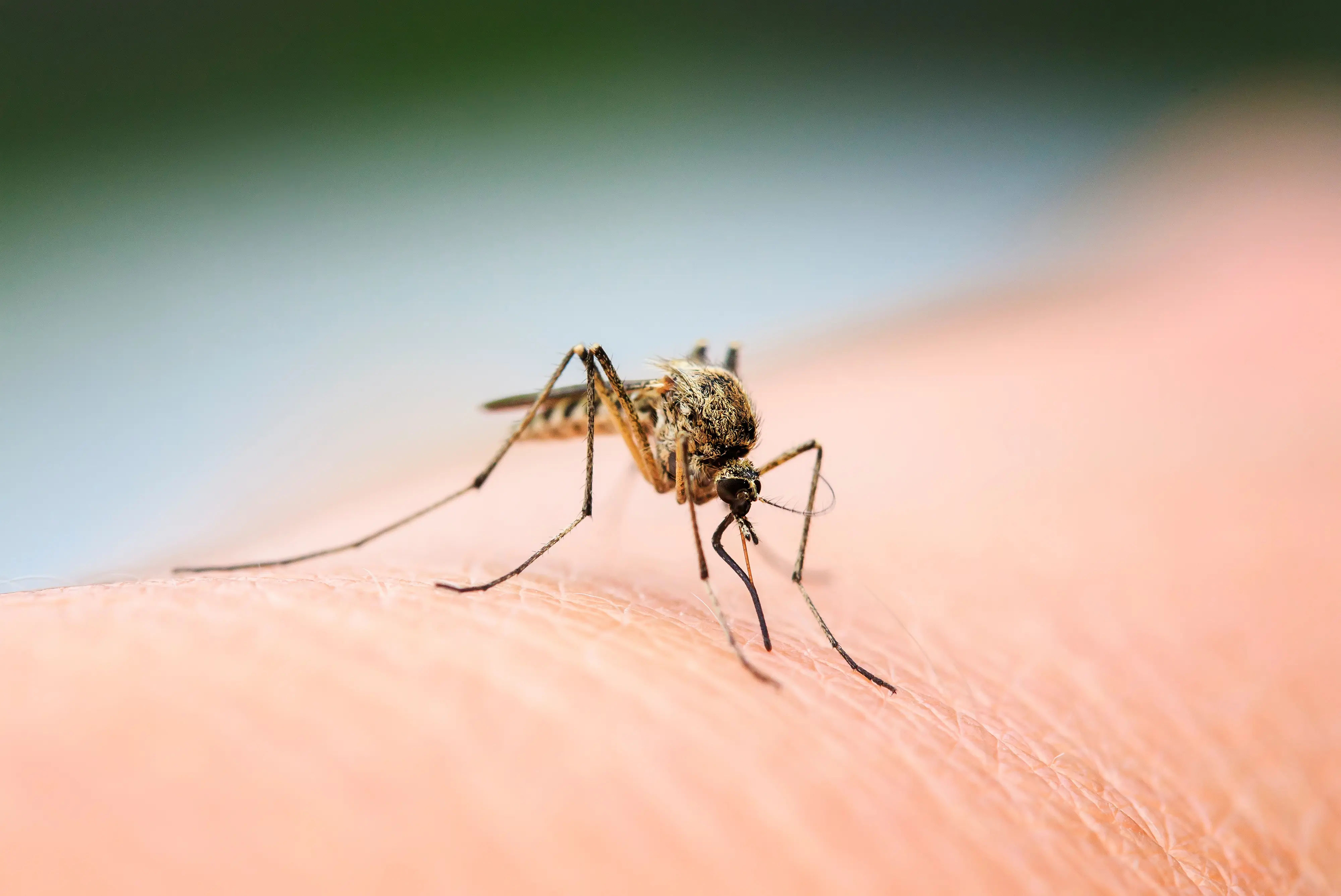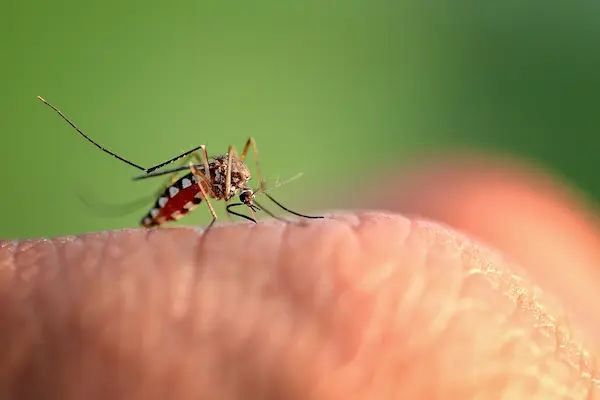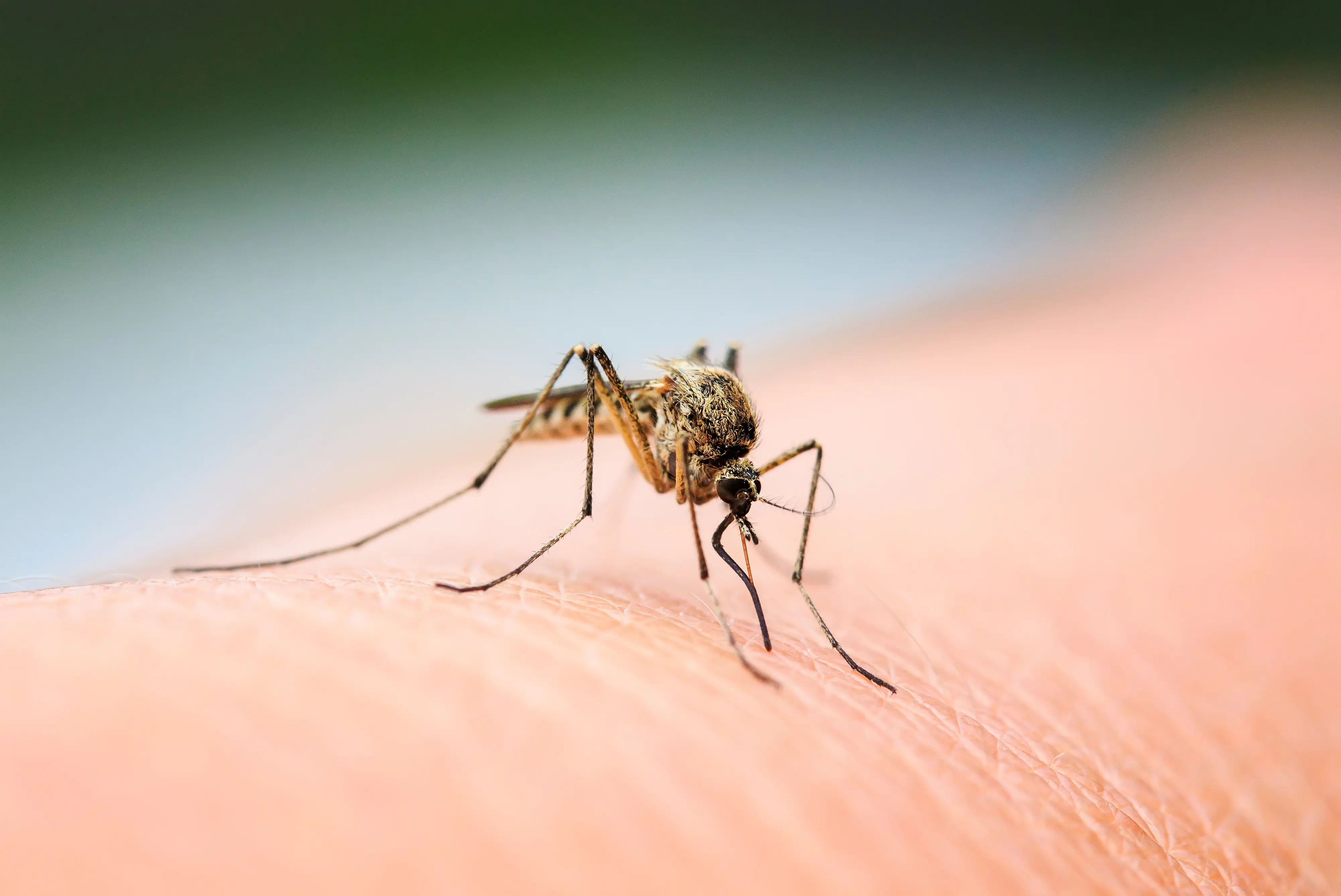Dengue Fever: Signs, Diagnosis, Treatment, and Prevention
Know what dengue fever is, its signs, diagnosis, treatment, and prevention, more.

Written by Dr. Shaik Abdul Kalam
Reviewed by Dr. J T Hema Pratima MBBS, Fellowship in Diabetes Mellitus
Last updated on 13th Jan, 2026

Introduction
A sudden high fever, a severe headache behind the eyes, and intense muscle and joint pains are the classic hallmarks of dengue fever, a mosquito-borne viral illness that affects millions worldwide each year. As climate change expands the habitat of the Aedes mosquito that carries the virus, understanding this disease is more crucial than ever. This comprehensive guide will walk you through everything you need to know about dengue fever, from identifying its earliest signs to navigating diagnosis and treatment.
What is Dengue Fever?
Dengue fever is a painful, debilitating illness caused by any one of four closely related dengue viruses (DENV-1, DENV-2, DENV-3, and DENV-4). It is transmitted to humans through the bite of an infected female Aedes aegypti mosquito. The disease is prevalent throughout tropical and subtropical regions, including parts of Southeast Asia, the Pacific Islands, the Caribbean, and Latin America. The global incidence of dengue has grown dramatically in recent decades, making it a major international public health concern.
How Does Dengue Spread? The Role of the Aedes Mosquito
The cycle of transmission is straightforward but effective. When a mosquito bites a person infected with the dengue virus, the mosquito becomes a carrier. After an incubation period of 4-10 days, the infected mosquito can then transmit the virus to other people through its bites. Unlike other mosquitoes, the Aedes aegypti is a daytime biter, with its peak activity periods in the early morning and just before dusk. It thrives in urban environments and breeds primarily in man-made containers like discarded tires, flower pots, water storage containers, and clogged gutters that hold clean, stagnant water.
Consult a General Practitioner for Personalised Advice
Recognising the Signs: Symptoms of Dengue Fever
Symptoms typically begin 4-10 days after being bitten by an infected mosquito and can last for 2-7 days. The presentation can range from mild to severe, and it's vital to distinguish between the two.
Mild Dengue Fever Symptoms
Often called "break-bone fever" due to the severe pain it can cause, mild dengue symptoms may be mistaken for a bad flu.
Key signs include:
- Sudden high fever (104°F or 40°C)
- Severe headache, especially behind the eyes
- Intense muscle, bone, and joint pain
- Nausea and vomiting
- Pain behind the eyes
- Swollen glands
- A characteristic skin rash, which may appear a few days after the fever
Warning Signs of Severe Dengue (Dengue Hemorrhagic Fever)
In some cases, typically after the initial fever has subsided, the disease can progress to a life-threatening form called severe dengue or dengue hemorrhagic fever. This is characterised by plasma leaking, fluid accumulation, respiratory distress, severe bleeding, and organ impairment. Watch for these warning signs of severe dengue, which usually appear 24-48 hours after the fever goes down:
- Severe abdominal pain and persistent vomiting
- Bleeding from the nose or gums
- Vomiting blood or blood in the stool
- Rapid breathing or difficulty breathing
- Fatigue, restlessness, or irritability
The Critical Phase: When to Seek Immediate Medical Attention
The transition from mild to severe dengue can be rapid and is a medical emergency. If you or a family member experiences any of the warning signs—especially severe abdominal pain, vomiting, or bleeding—it is crucial to seek immediate medical care. Do not wait. Early professional intervention is the single most important factor in managing severe dengue and preventing mortality.
How is Dengue Fever Diagnosed?
Diagnosing dengue can be challenging because its early symptoms overlap with many other illnesses like malaria, chikungunya, and the Zika virus. A doctor will use a combination of methods.
Common Diagnostic Tests for Dengue
These include:
- NS1 Antigen Test: This test detects the presence of the dengue virus itself (the NS1 protein) in the blood. It is most effective within the first 5-7 days of symptom onset.
- Antibody Tests (IgM and IgG): These tests look for antibodies your immune system produces to fight the infection. IgM antibodies are detectable about 4-5 days after infection and can persist for 2-3 months. IgG antibodies appear later and can last for years, indicating a past infection.
- PCR (Polymerase Chain Reaction) Test: This is a molecular test that identifies the genetic material of the virus in the blood. It is highly accurate in the first week of illness.
- Complete Blood Count (CBC): This is not a diagnostic test for the virus itself but is critical for monitoring the illness. A sharp drop in platelet count (thrombocytopenia) and an increase in hematocrit (indicating blood concentration) are key markers of disease progression.
The Importance of Medical History and Physical Examination
Your doctor will ask about your travel history, recent exposure to mosquitoes, and the specific nature and timeline of your symptoms. This context, combined with a physical exam to check for bleeding tendencies, an enlarged liver, and other signs, is essential for an accurate dengue diagnosis.
Dengue Fever Treatment: Managing the Symptoms
It includes:
There is No Cure: Why Supportive Care is Key
There is no specific antiviral medication to cure dengue fever. Treatment is entirely supportive and focuses on managing symptoms, keeping the patient comfortable, and preventing complications. The cornerstone of treatment is:
Adequate Hydration: Fever and vomiting can lead to severe dehydration. Drinking plenty of fluids—oral rehydration solutions (ORS), water, and juice—is paramount. In severe cases, intravenous (IV) fluid administration in a hospital is necessary.
Pain and Fever Management: This is where careful medication choice is critical.
Home Remedies and Self-Care for Dengue
For mild cases, doctors often recommend home care:
- Rest: Get plenty of bed rest to help your body fight the infection.
- Hydrate: Constantly sip fluids. Monitor urine output; pale yellow urine is a good sign of hydration.
- Cool Compresses: Use damp cloths on the forehead and limbs to help manage fever.
Medications to Avoid During Dengue Infection
This is a vital public health message. Avoid non-steroidal anti-inflammatory drugs (NSAIDs) like aspirin, ibuprofen, and naproxen. These medications can increase the risk of bleeding complications (like internal bleeding) in dengue patients.
The only recommended pain and fever reliever is acetaminophen (paracetamol), and even this should be used sparingly and under medical guidance. If your condition does not improve after trying these methods, or if warning signs appear, book a physical visit to a doctor with Apollo24|7 for further evaluation.
Preventing Dengue Fever: Your Best Defense
Since there is no specific treatment, prevention is undoubtedly the best strategy against dengue.
Mosquito Control: Stop Breeding, Stop Bites
The most effective way to prevent dengue is to control mosquito populations and avoid bites.
- Eliminate Breeding Grounds: Regularly check your home and surroundings for any containers that can hold water. Empty, clean, or cover water storage containers, flower vases, and discarded tires. Ensure gutters are not clogged.
- Use Mosquito Repellent: Apply EPA-registered repellents containing DEET, picaridin, or oil of lemon eucalyptus on exposed skin.
- Wear Protective Clothing: When outdoors, wear long-sleeved shirts, long pants, socks, and shoes.
- Use Physical Barriers: Keep mosquitoes out by using window and door screens. Sleep under a mosquito net, especially during the day, for infants and young children.
Understanding the Dengue Vaccine
A vaccine for dengue is available in some countries, but is not universally recommended. It is typically approved only for individuals with a confirmed prior dengue infection, as it can increase the risk of severe dengue in those experiencing their first natural infection after vaccination. Consult an infectious disease specialist to understand if the vaccine is appropriate for you.
Conclusion
Dengue fever is a significant health threat in many parts of the world, but it is a manageable and preventable disease. Armed with the knowledge of its signs from the initial high fever to the critical warning signals, you can take swift and appropriate action. Remember, while home care is sufficient for many, recognising the red flags for severe dengue can be life-saving. Prioritise prevention by diligently eliminating mosquito breeding sites around your home and using effective repellents. Stay informed, stay vigilant, and don't hesitate to seek professional medical advice.
Consult a General Practitioner for Personalised Advice
Consult a General Practitioner for Personalised Advice

Dr. Mainak Baksi
General Practitioner
13 Years • MBBS , MD (MPH)
Howrah
Mainak Baksi Clinic, Howrah
(50+ Patients)

Dr Suseela
General Physician
5 Years • MBBS
Bengaluru
Apollo Medical Center, Marathahalli, Bengaluru

Dr. Rajib Ghose
General Physician/ Internal Medicine Specialist
25 Years • MBBS
East Midnapore
VIVEKANANDA SEBA SADAN, East Midnapore

Dr. Jawwad Mohammed Kaleem
General Practitioner
4 Years • MBBS
Hyderabad
Apollo 24|7 Clinic, Hyderabad

Dr. Rohinipriyanka Reddy
General Practitioner
9 Years • MBBS
Hyderabad
Apollo 24|7 Clinic, Hyderabad
Consult a General Practitioner for Personalised Advice

Dr. Mainak Baksi
General Practitioner
13 Years • MBBS , MD (MPH)
Howrah
Mainak Baksi Clinic, Howrah
(50+ Patients)

Dr Suseela
General Physician
5 Years • MBBS
Bengaluru
Apollo Medical Center, Marathahalli, Bengaluru

Dr. Rajib Ghose
General Physician/ Internal Medicine Specialist
25 Years • MBBS
East Midnapore
VIVEKANANDA SEBA SADAN, East Midnapore

Dr. Jawwad Mohammed Kaleem
General Practitioner
4 Years • MBBS
Hyderabad
Apollo 24|7 Clinic, Hyderabad

Dr. Rohinipriyanka Reddy
General Practitioner
9 Years • MBBS
Hyderabad
Apollo 24|7 Clinic, Hyderabad
More articles from Dengue fever
Frequently Asked Questions
Can you get dengue fever more than once?
Yes, there are four different serotypes of the dengue virus. Recovery from one infection provides lifelong immunity against that specific serotype. However, subsequent infections by other serotypes increase the risk of developing severe dengue.
What is the typical dengue fever recovery time?
Most people start to feel better after a week, but full recovery, especially from the fatigue and weakness, can take several weeks.
How can I quickly increase my platelet count in dengue?
There is no specific food or drink that is proven to rapidly increase platelet counts. The most important factor is adequate hydration to support your body's natural recovery process. Medical intervention (like platelet transfusion) is only necessary in severe cases and is decided by a doctor.
Is dengue contagious from person to person?
No, dengue does not spread directly from person to person. The only way it spreads is through the bite of an infected mosquito.
What is the difference between dengue and malaria?
Both are mosquito-borne illnesses but are caused by different pathogens (virus vs. parasite) and transmitted by different mosquitoes (Aedes vs. Anopheles). While both cause fever, the severe joint and muscle pain is more characteristic of dengue. A proper medical diagnosis is needed to distinguish between them.




